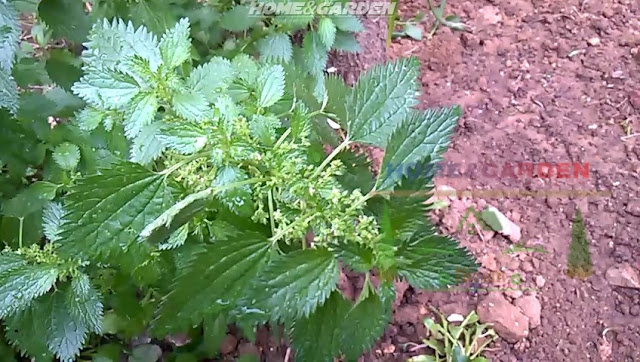Stinging nettle, or "Urtica dioica", is a common plant that grows in all the world. This plant has a long history of use as a medicinal aid. Stinging nettles is a wonderfully nutritious wild green and been eaten as a wild food plant.
Ancient Egyptians have used stinging nettle infusions to treat arthritis. According to the Arthritis Foundation, some people claim that the nettle can reduce inflammation, help improve osteoarthritis pain, and ease gout.
Stinging nettle hairs contain several chemicals that have pain-relieving and anti-inflammatory properties.
What gives the nettle plant it's "stinging" name!
It's because the plant is covered across leaves and stem with tiny, hollow, bristle like hairs that release chemicals that produce a burning, and when they come into contact with the skin, there's a stinging sensation. So when collecting stinging nettle always cover up all exposed skin.
You can also purchase stinging nettle products that use the stems, leaves, and roots of the plant online. Remember when purchasing remedies over the Internet, just be sure to check the reviews and find reputable brands!
Stinging nettles have a long history of numerous uses. The plant is an excellent blood purifier, and extremely high in vitamin C. Nettle is delicious to eat and with it's leaves we can make a relaxing herb tea.
Plant description
Stinging nettle is an herbaceous plant that can grow more than 1 metre in height. Both the stems and leaves of the plant are covered with numerous stinging and non-stinging trichomes. The flowers are in dense whorled clusters, and are pollinated by the wind. Stinging nettle fruits are small, and the plants produce copious amounts of seeds. The nettle has sharp hairs on its leaves. These hairs contain chemicals, such as formic acid and histamine, that can irritate the skin and cause stinging, and redness. They also contain a range of other chemicals that can affect humans, including acetylcholine and serotonin.
Health Benefits of Stinging Nettle
All parts of the nettle plant can be used for different applications. Stinging nettle has a range of uses, it's an effective remedy with many uses, ranging from reducing arthritis pain to treating seasonal allergies. This wonderful and unique herb is generally safe to use, but it can cause side effects in some people.Ancient Egyptians have used stinging nettle infusions to treat arthritis. According to the Arthritis Foundation, some people claim that the nettle can reduce inflammation, help improve osteoarthritis pain, and ease gout.
Stinging nettle hairs contain several chemicals that have pain-relieving and anti-inflammatory properties.
What gives the nettle plant it's "stinging" name!
It's because the plant is covered across leaves and stem with tiny, hollow, bristle like hairs that release chemicals that produce a burning, and when they come into contact with the skin, there's a stinging sensation. So when collecting stinging nettle always cover up all exposed skin.
You can also purchase stinging nettle products that use the stems, leaves, and roots of the plant online. Remember when purchasing remedies over the Internet, just be sure to check the reviews and find reputable brands!
Stinging nettles have a long history of numerous uses. The plant is an excellent blood purifier, and extremely high in vitamin C. Nettle is delicious to eat and with it's leaves we can make a relaxing herb tea.
Drinking nettle tea is an easy way to benefit from the herbal remedy!
Nettle tea is made from the leaves and stems of the plant, this tea is used as a natural remedy for a range of ailments, including frequent painful arthritis, difficulty with urination, help improve symptoms of hay fever, and can be effective in lowering blood sugar and alleviating the pain of osteoarthritis.
In addition to use it as a tea, nettle leaves are also used as a cooking ingredient, such spinach, chard, or parsley.
Stinging nettle is usually safe, but it can cause some side effects.
Side effects can include:
Stomach problems
Diarrhea
Hives
Urinary issues
It is so important to consult your doctor before using stinging nettle to treat any condition, as it may interact with medications!
Please let us know your thoughts, experiences, or questions in the comments below. If you like this, you can share with your friends!
Stinging Nettle Products available from HERE!
All information provided on this website is for informational purposes only. Please seek professional advice before commencing any treatment!
Some of the links to products on this site are affiliate links. I do make a small commission (at no extra cost to you) from these sales.
Stinging Nettle Products available from HERE!
All information provided on this website is for informational purposes only. Please seek professional advice before commencing any treatment!
Some of the links to products on this site are affiliate links. I do make a small commission (at no extra cost to you) from these sales.







